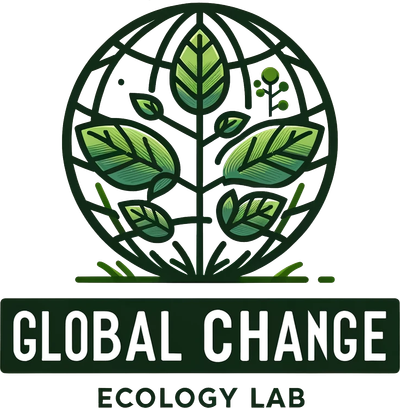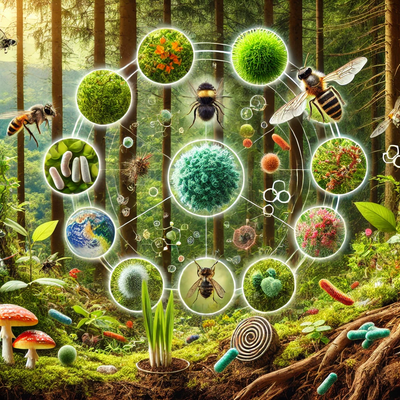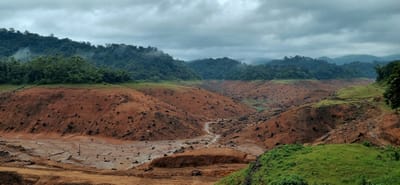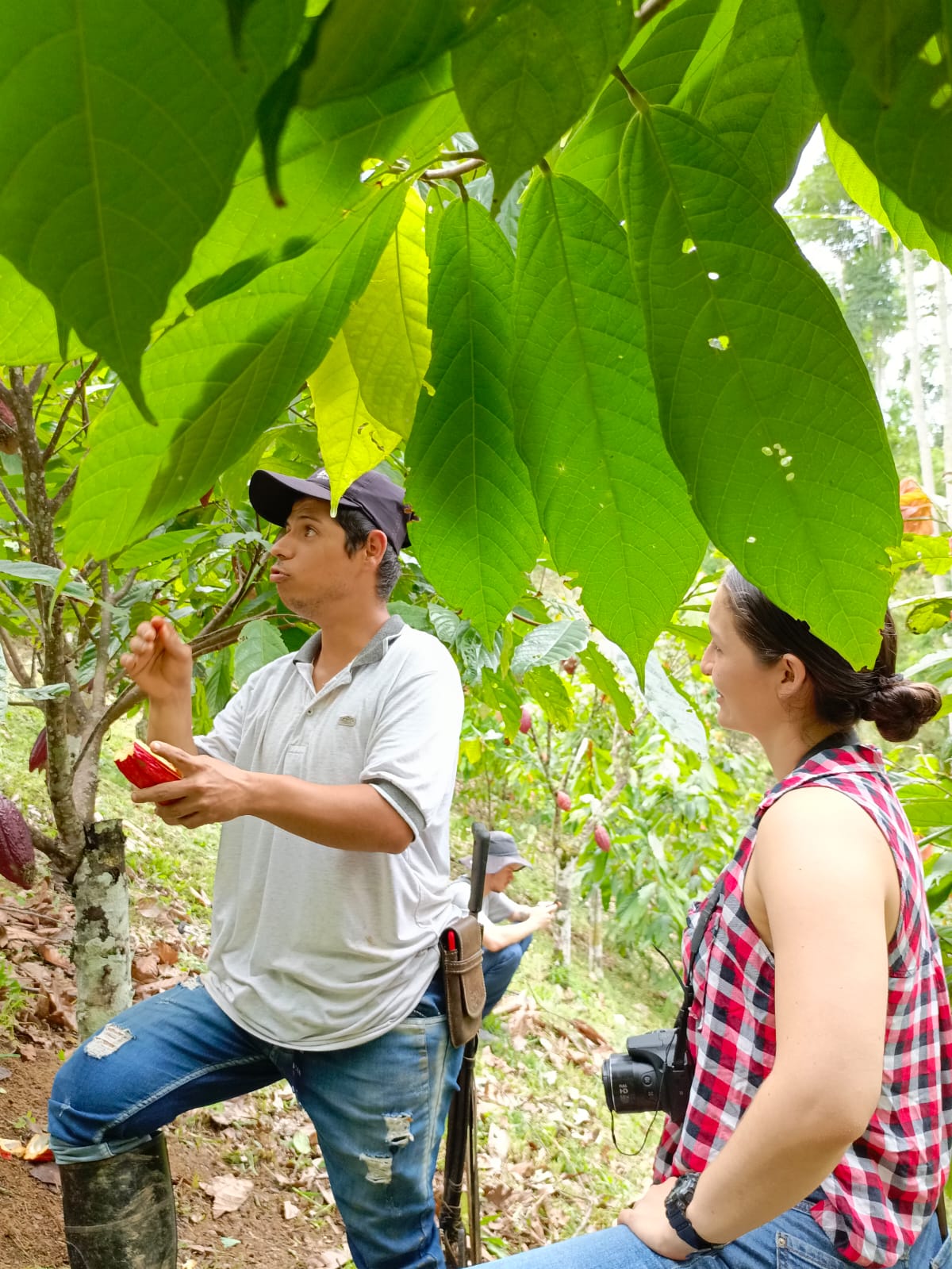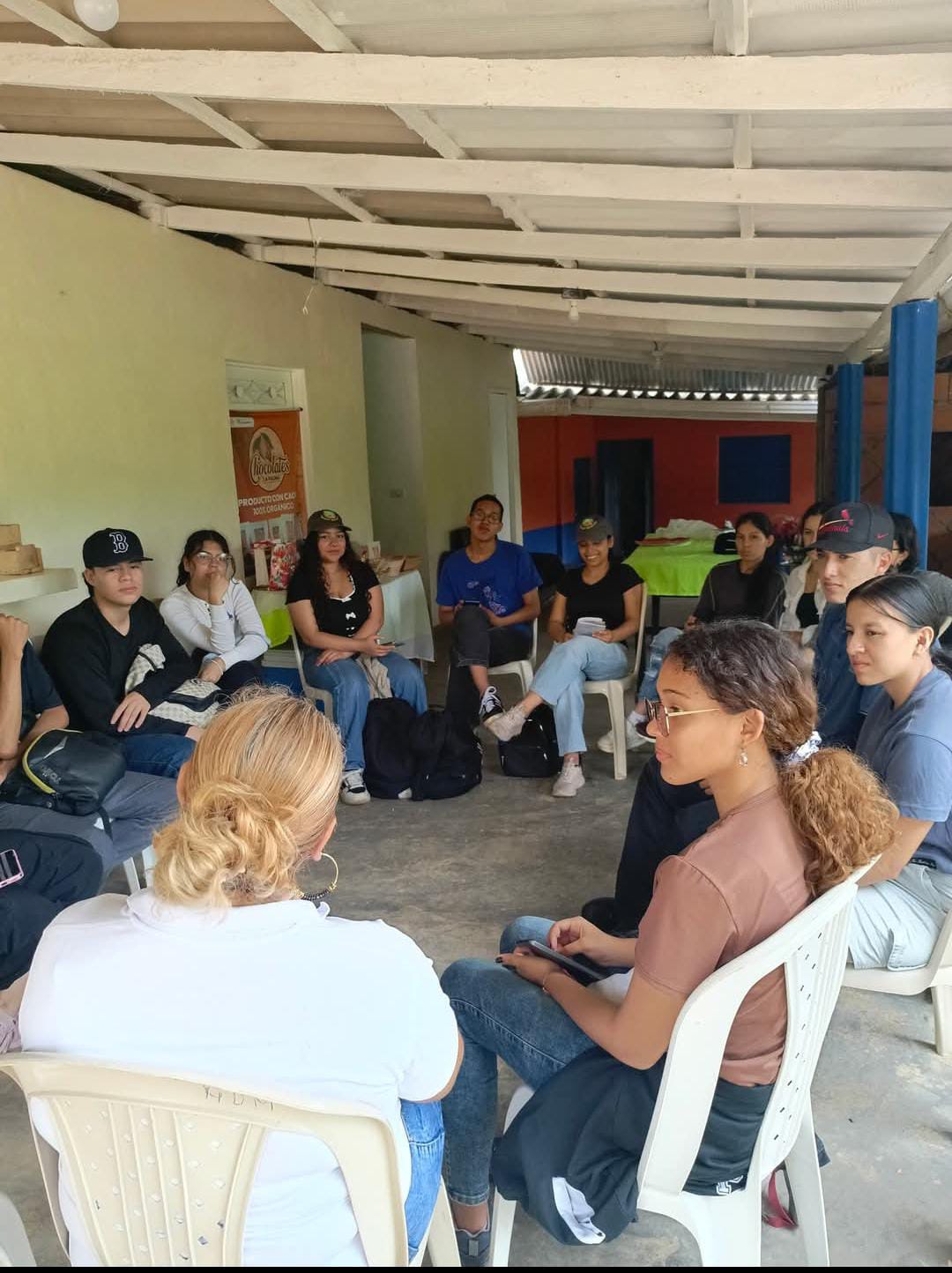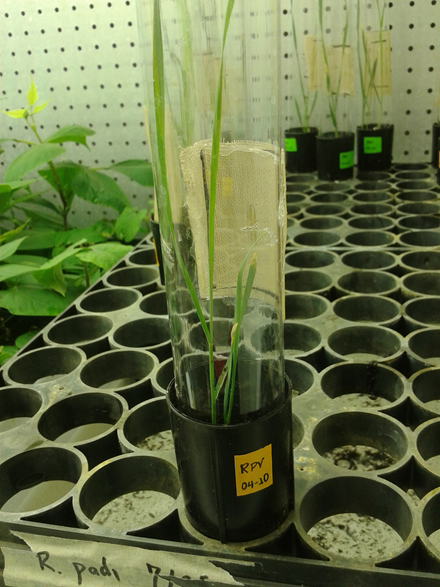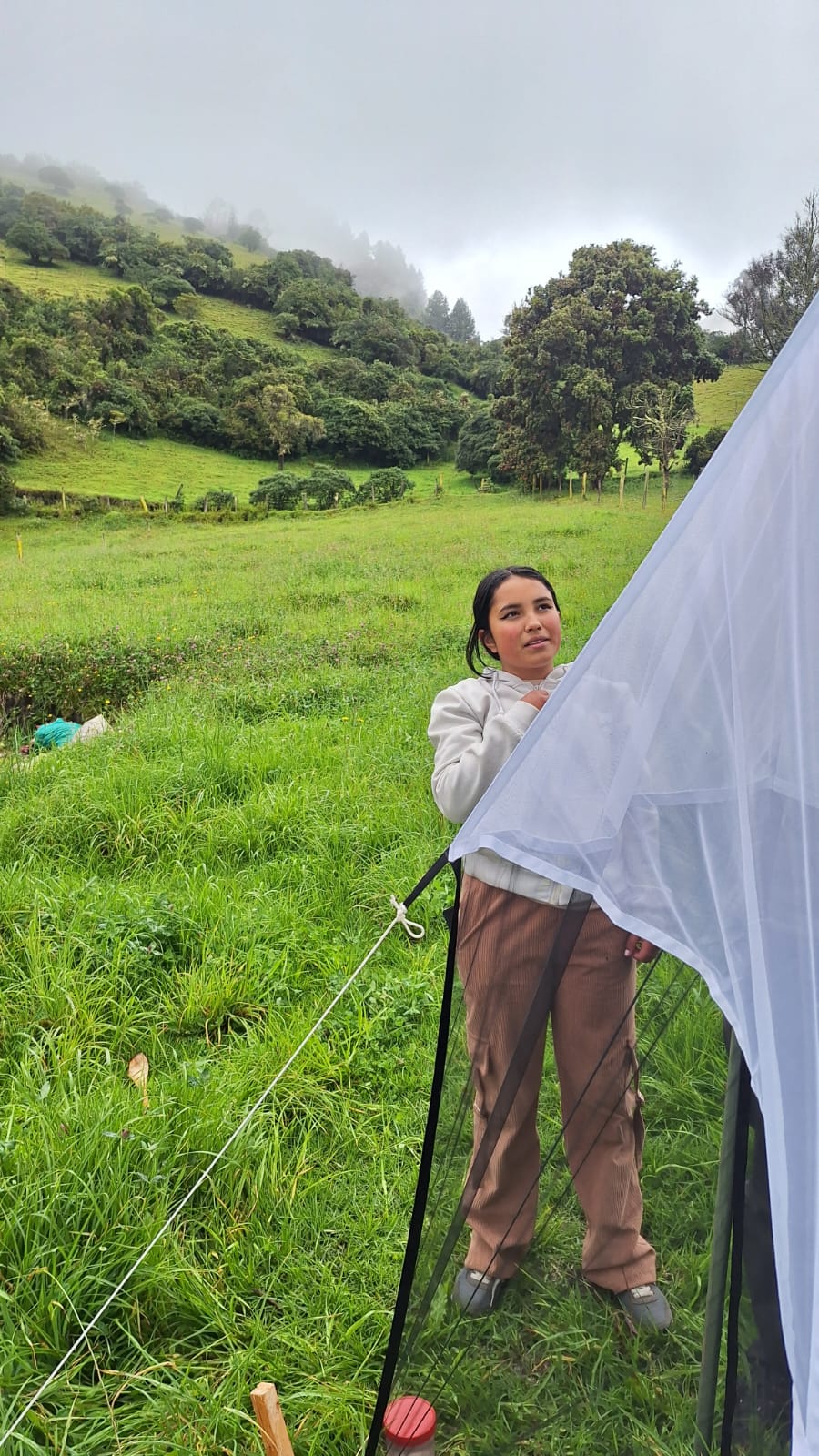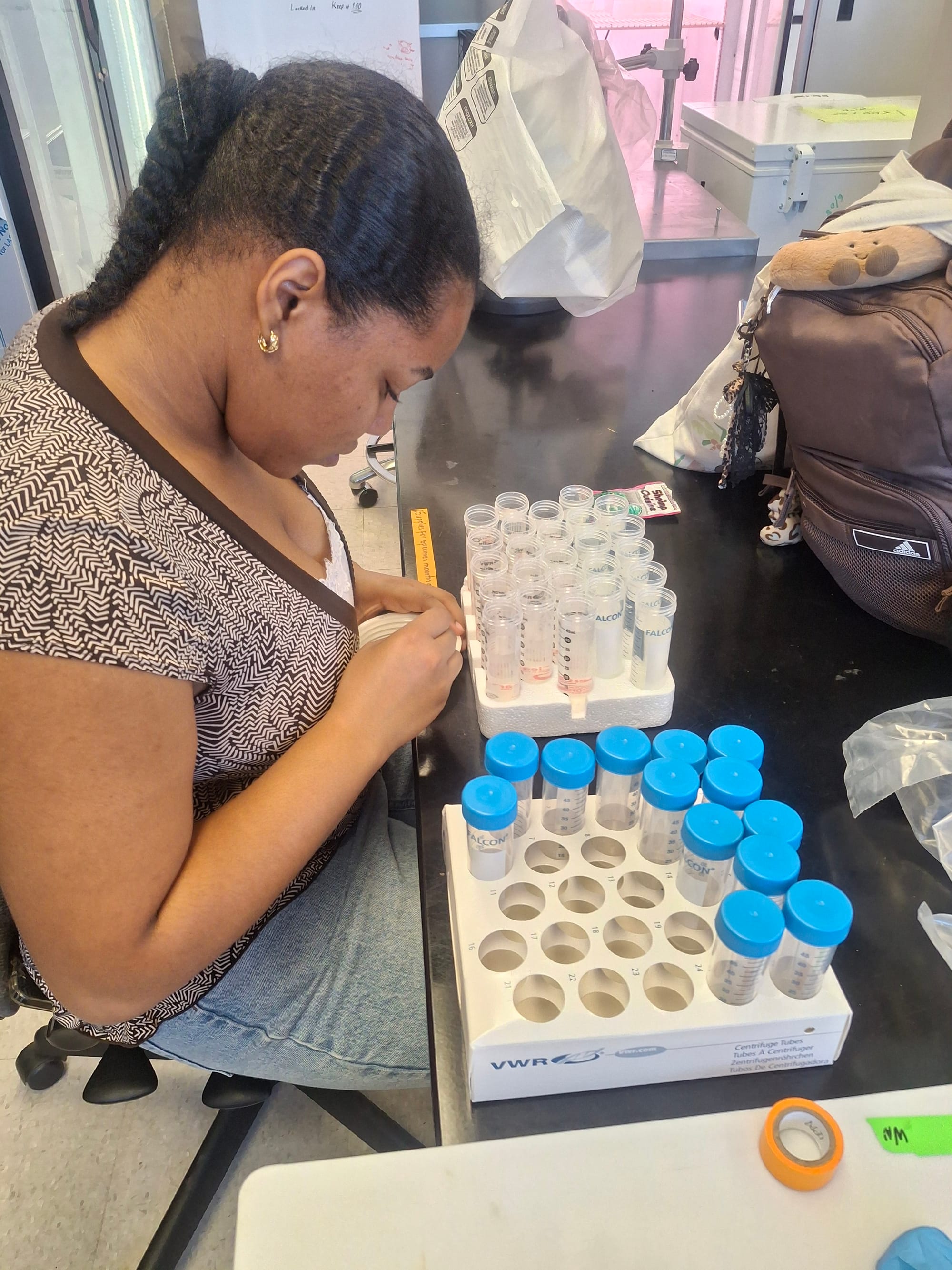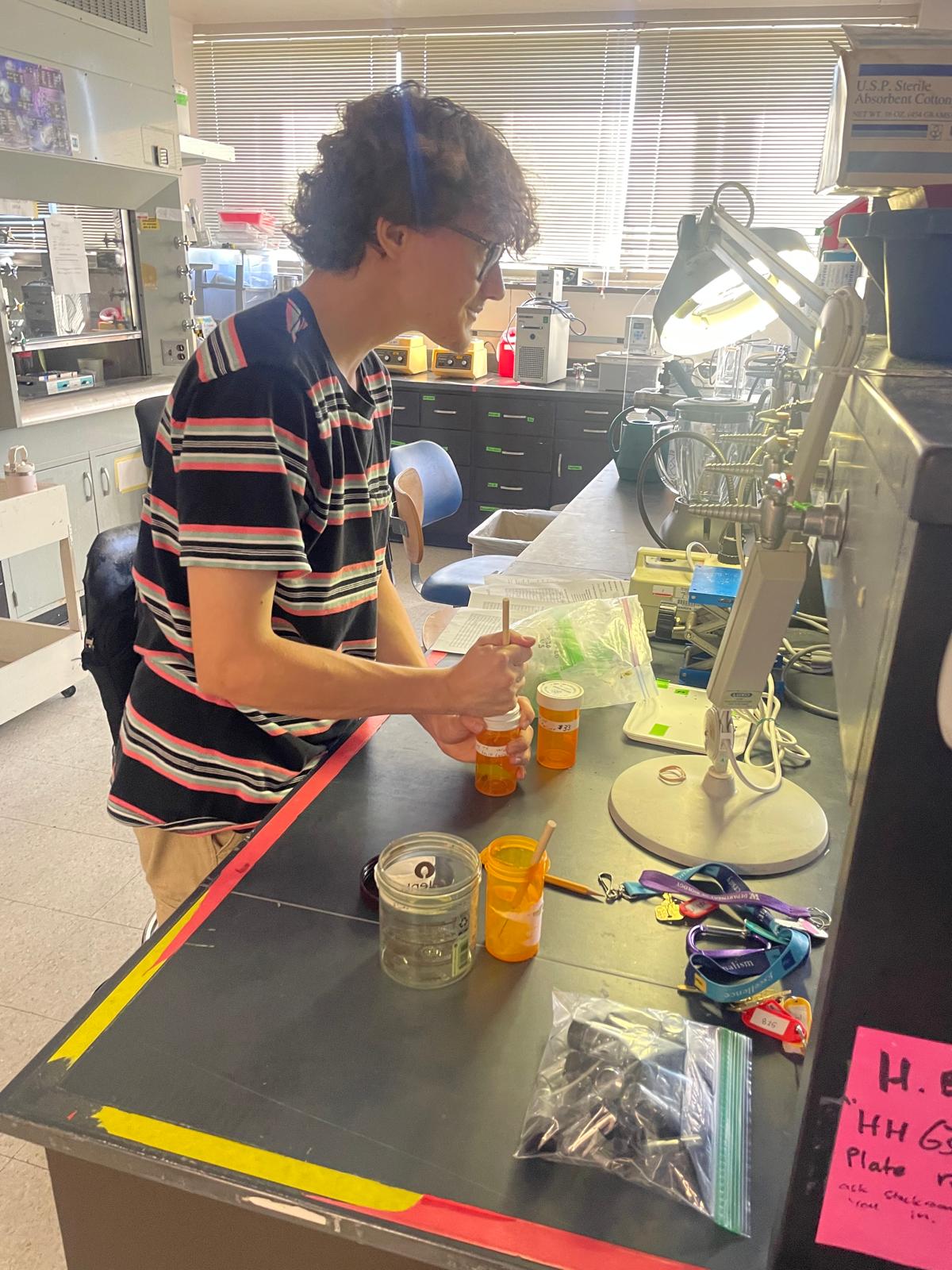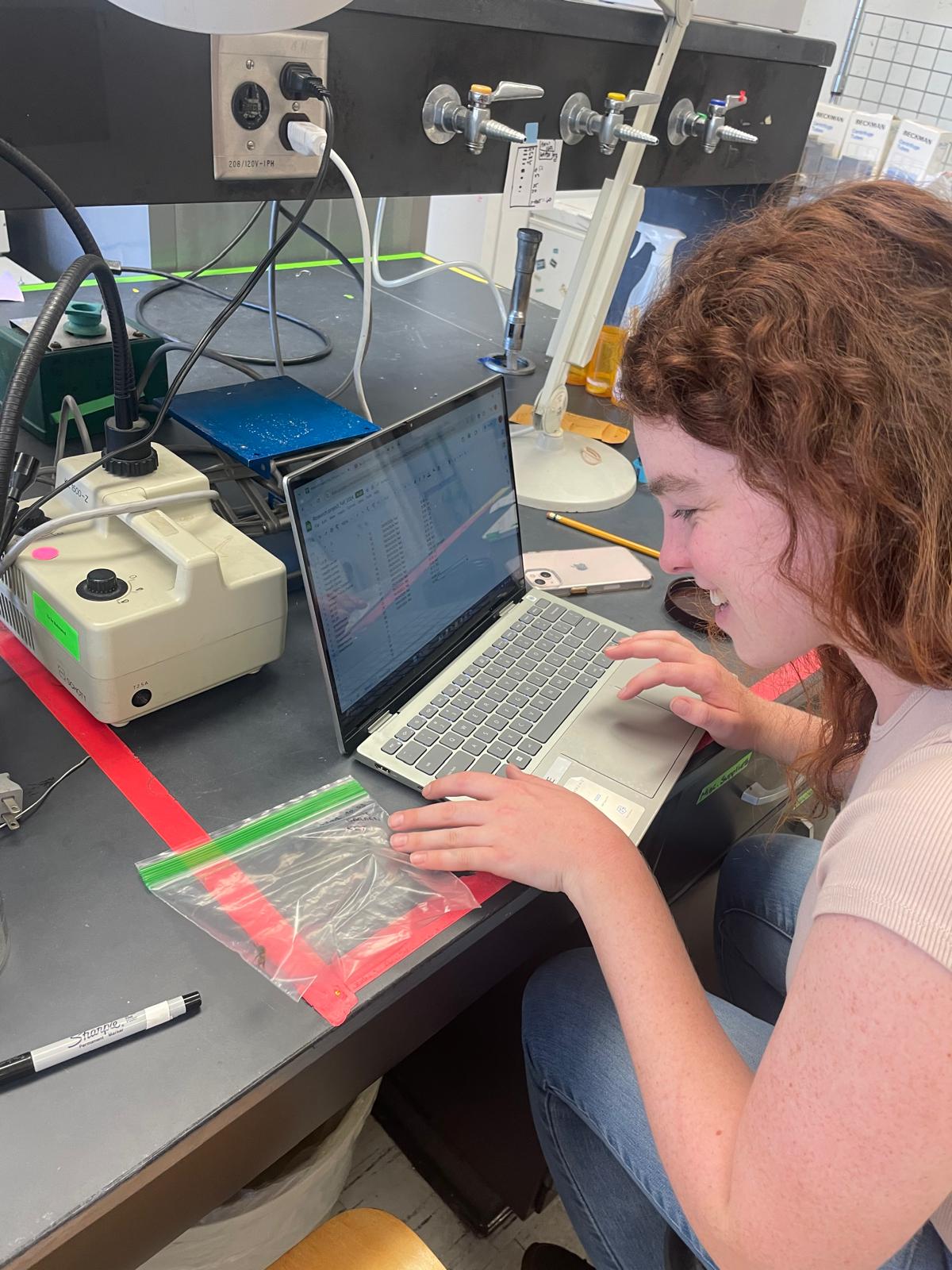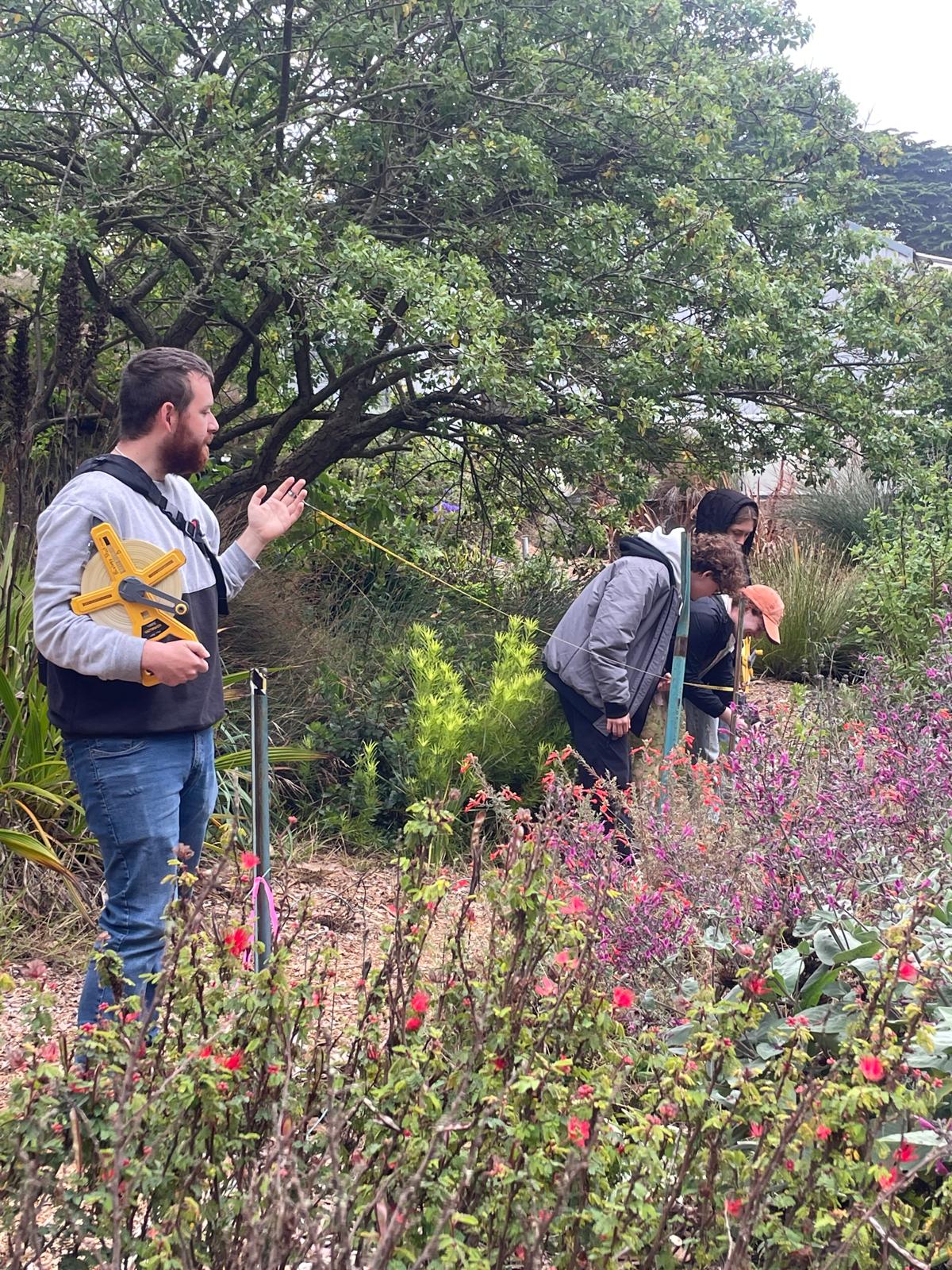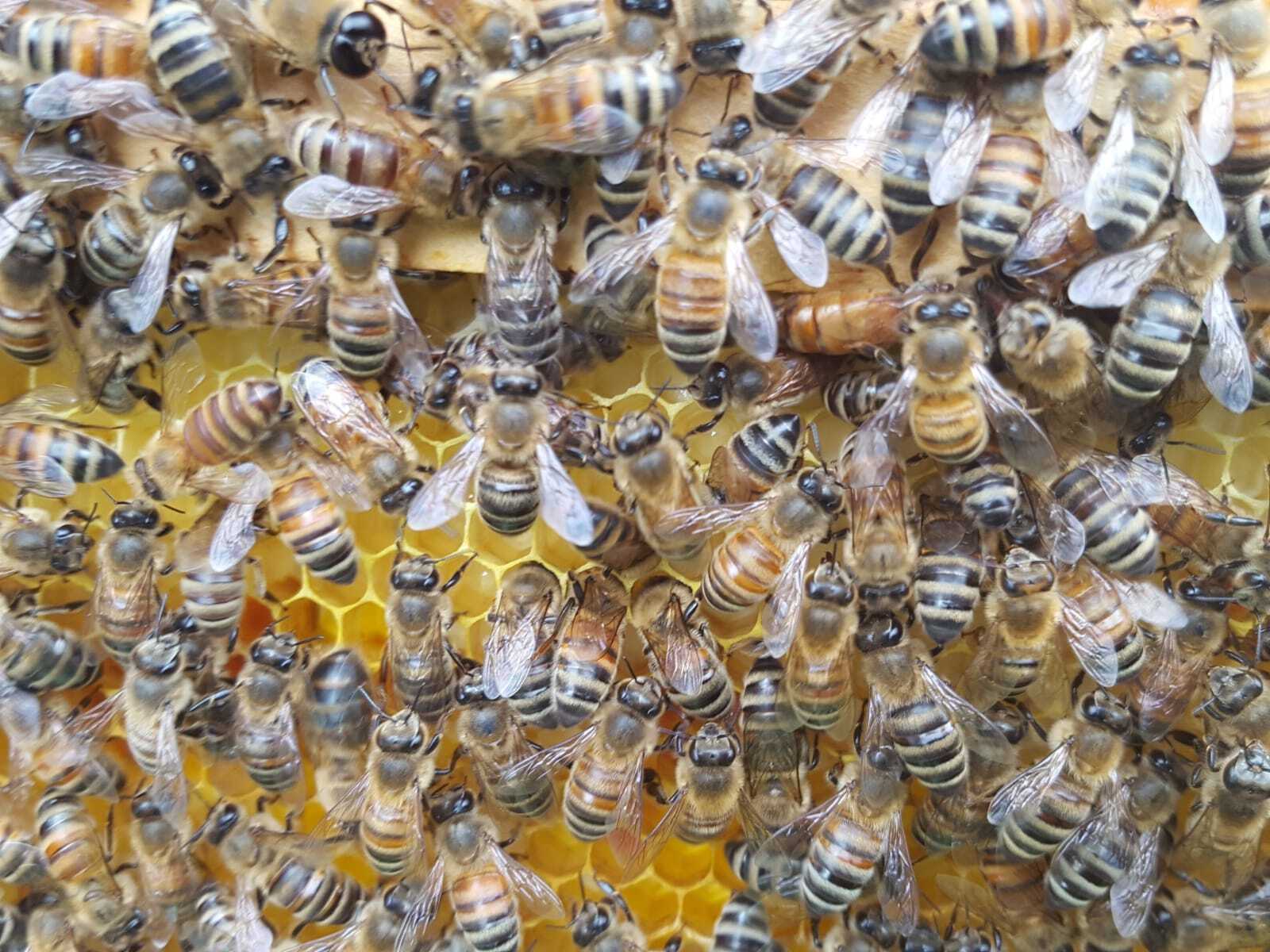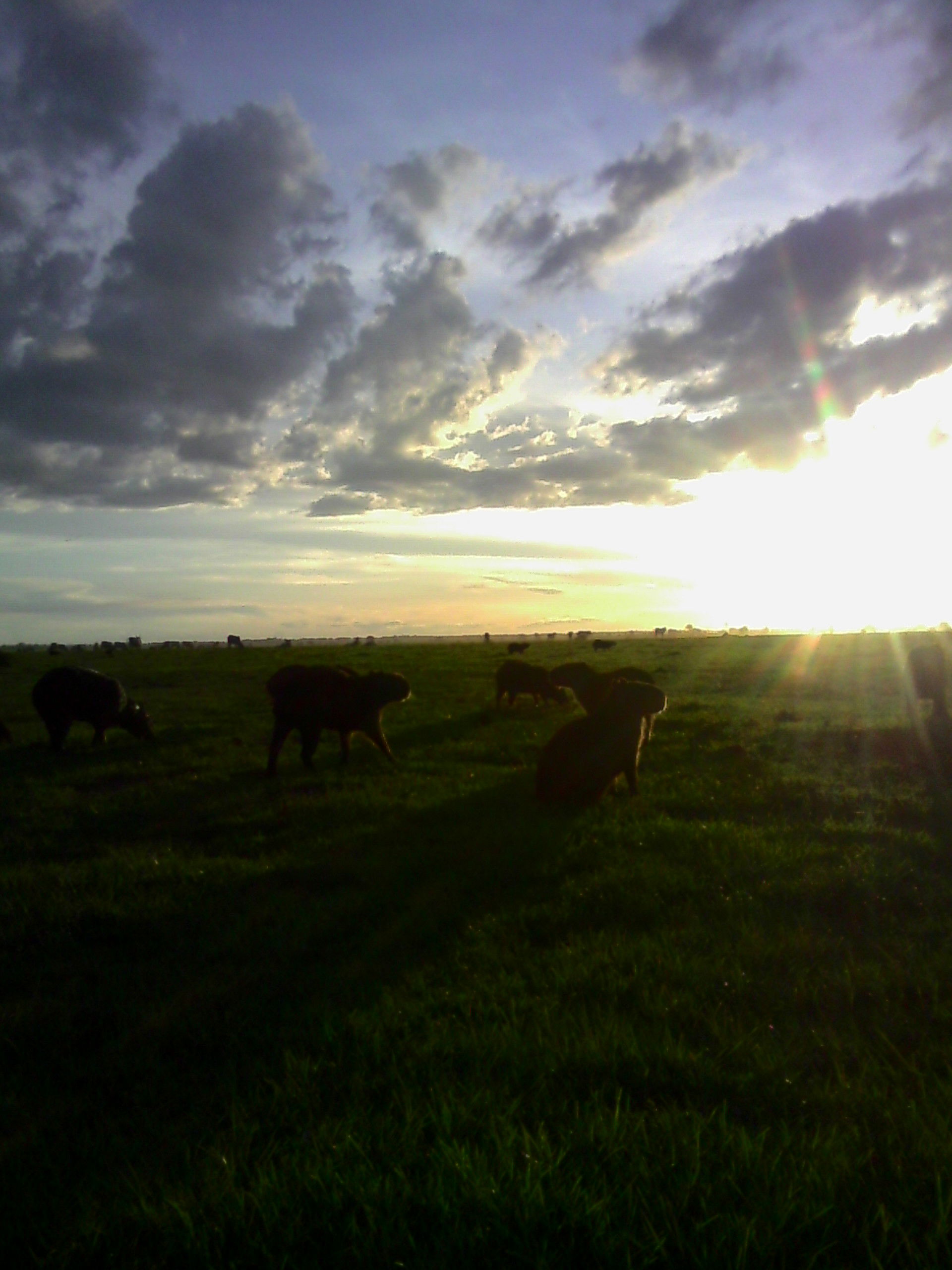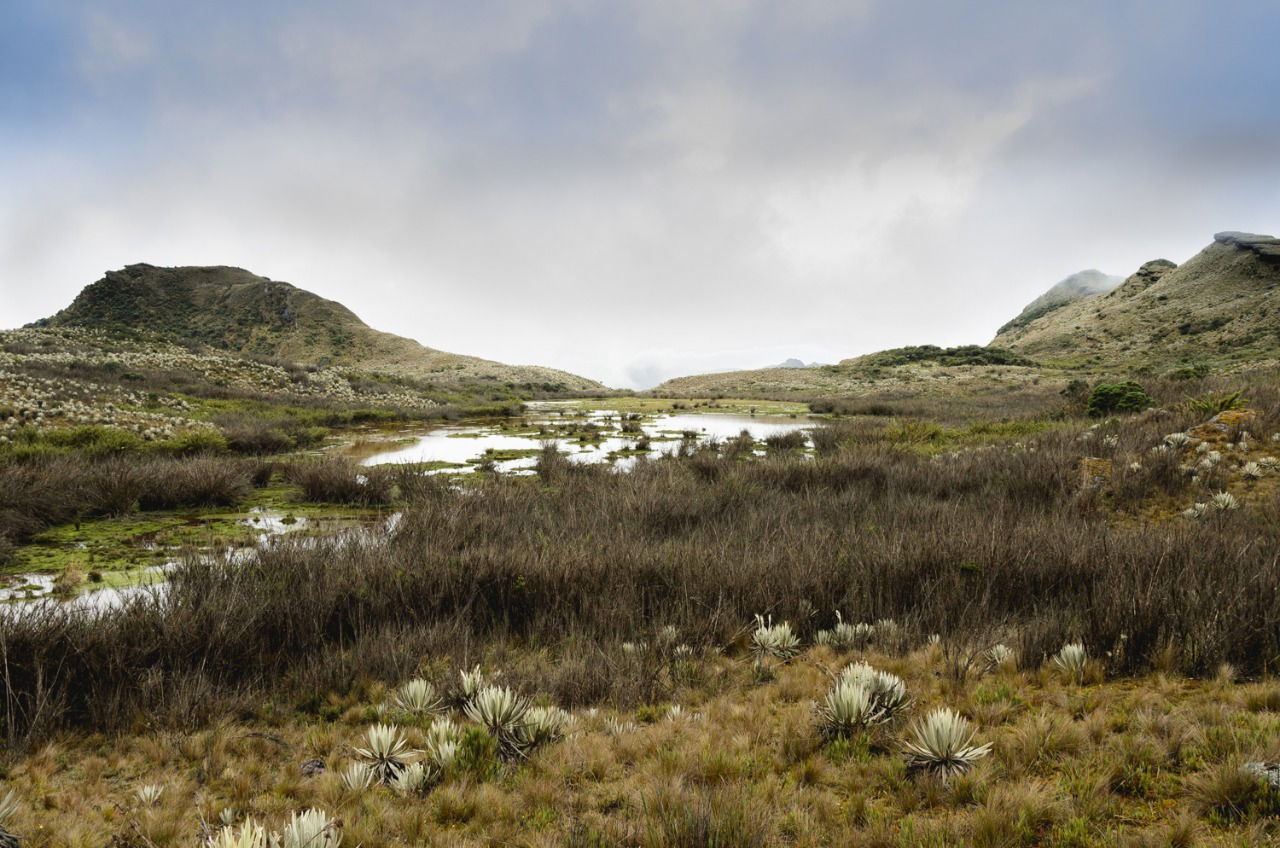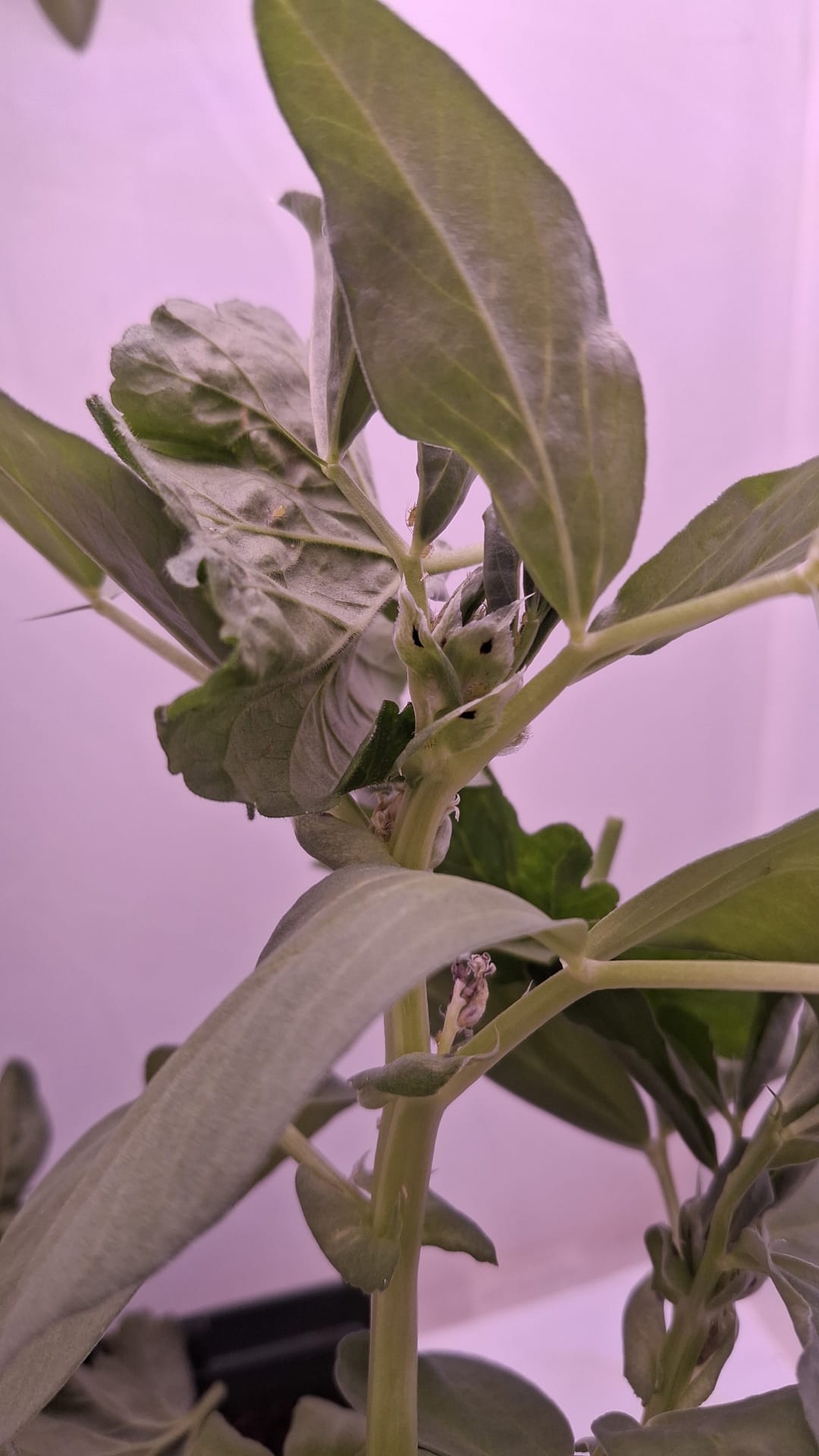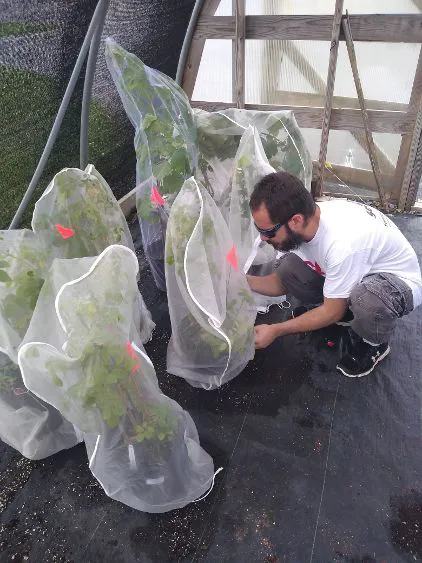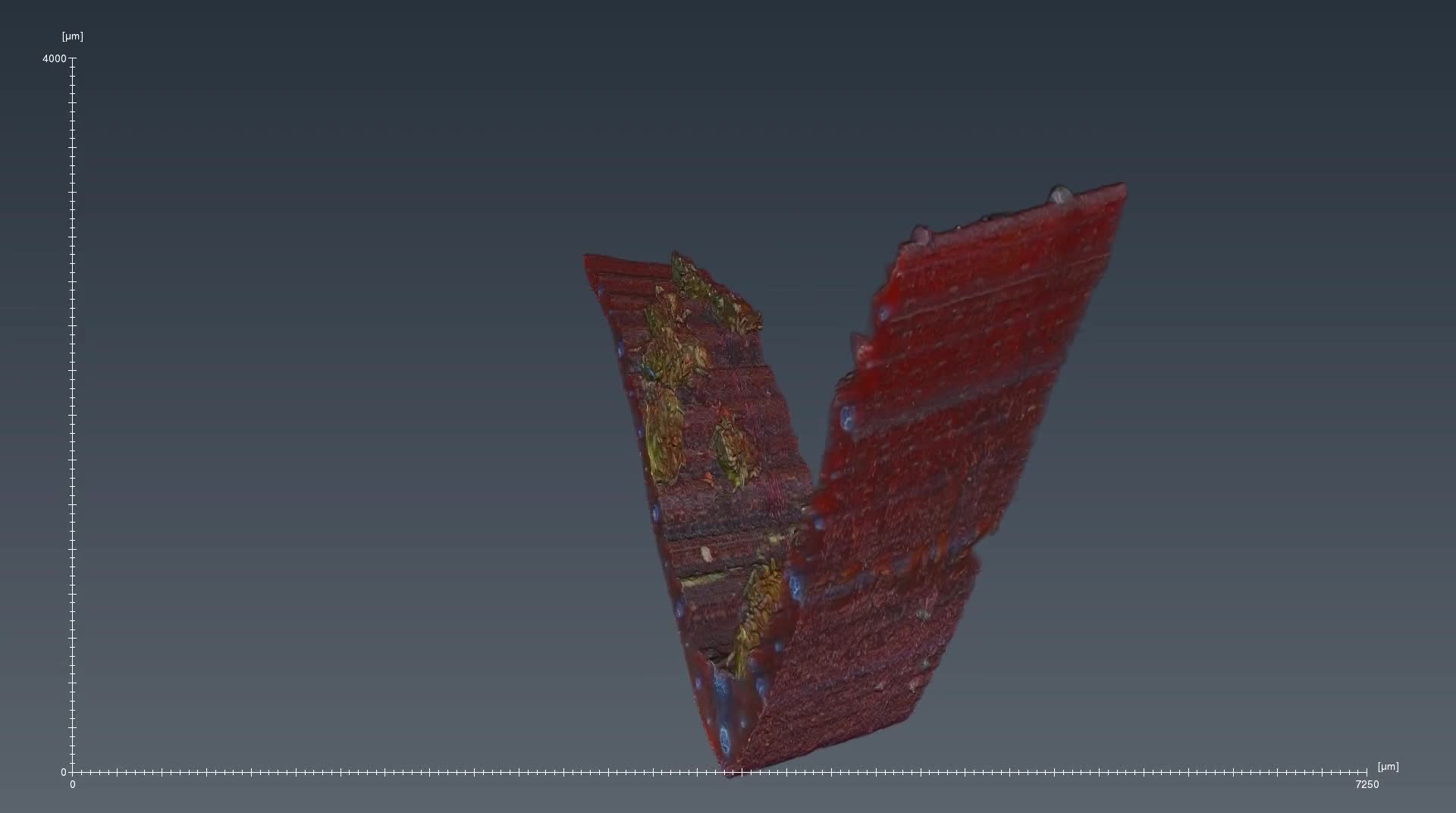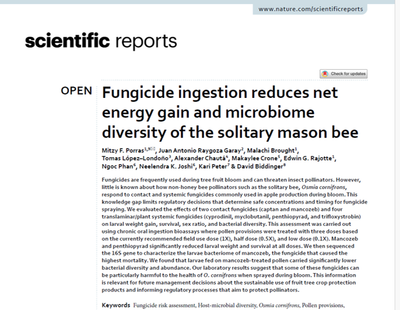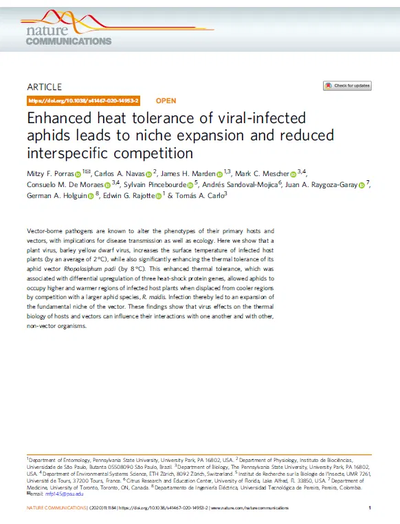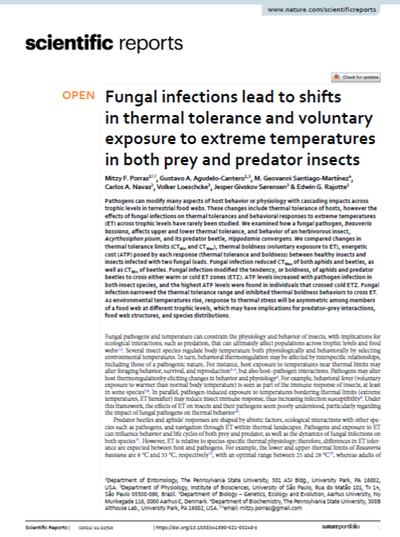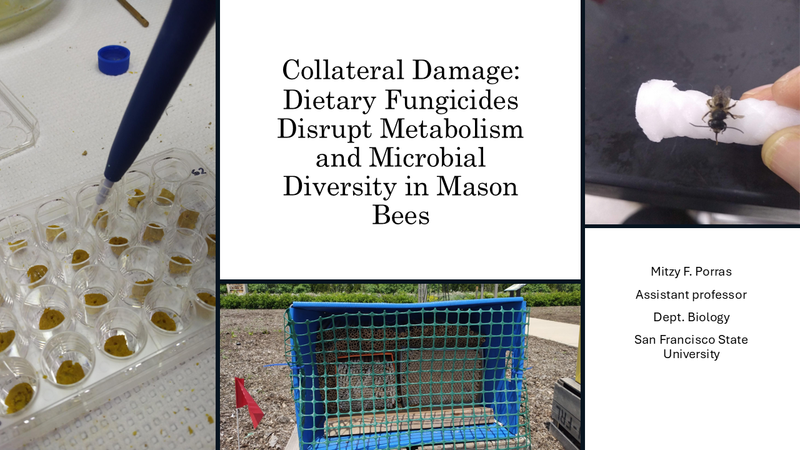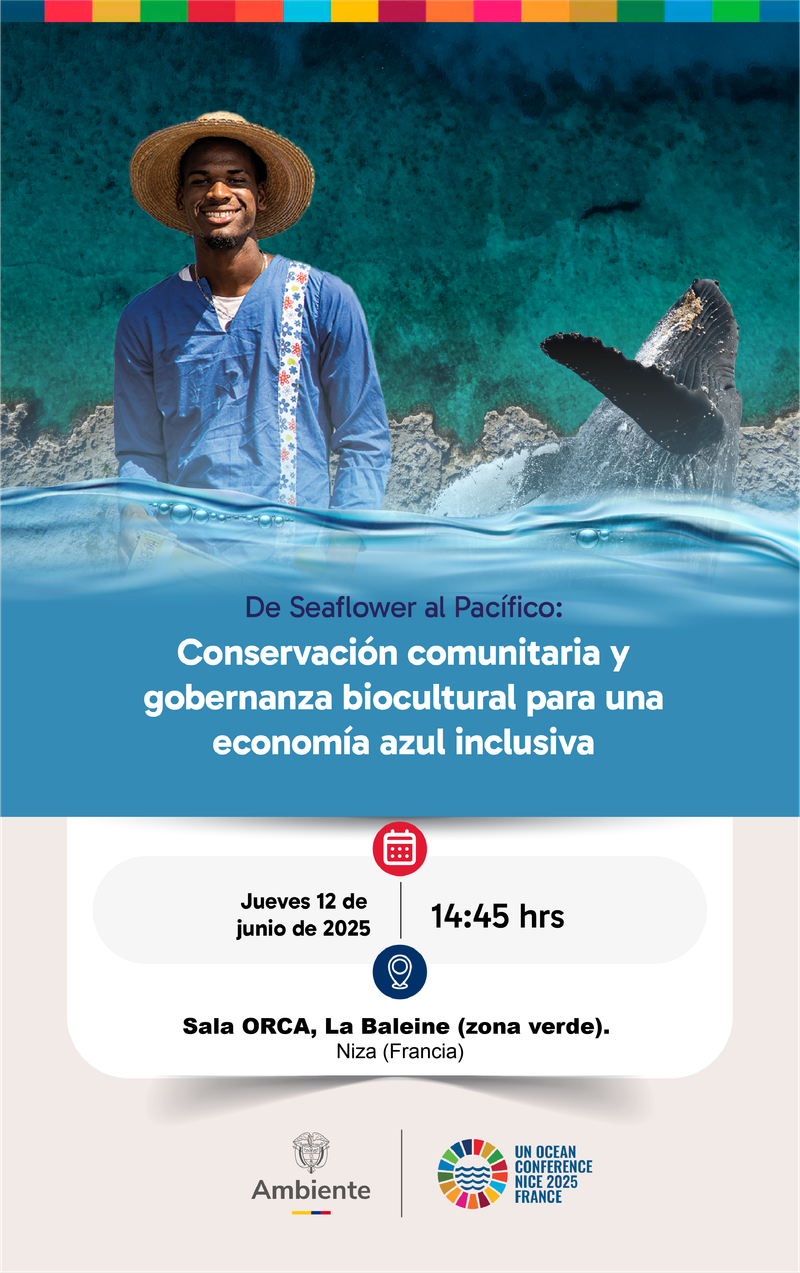About us
We study how abiotic and biotic stressors alter interactions among species (microbes, plants, invertebrates) and the implications on the structure and function of populations and communities.
Our work encompasses molecular biology, physiology, behavioral analysis, population and community ecology, and GIS. Our results are applied in species management strategies (e.g., sterile insect technique).
Research areas
Our research is expanding into exciting new research areas. Below is a list of some of our current projects. For detailed info feel free to send us an email!
Integrative approach
Physiological ecology
Population and community ecology
Microbiology
Organismal and Environmental microbiomes (metagenomics)
Chemical ecology
Behavioral ecology
Ecotoxicology
Team & Collaborators
3D laser ablation
Prospective students
Graduate students
Adapted from Vredenburg Lab.
I am interested in accepting students who whant to explore how global change drivers (climate change, land cover/land use change, pollution) alter insect-microbe-plant interactions. Strong candidates should have experience in ecological research (lab and or field work), and demonstrate a motivation to excel.
Graduate students complete the master's of science program in biology in Integrative Biology or Physiology & Behavioral Biology. For more information please see:
Master's of Science in Biology: https://biology.sfsu.edu/graduate/integrative
Master's of Science in Biology: https://biology.sfsu.edu/graduate/physiology
Additional scholarships: https://biology.sfsu.edu/funding-opportunities
For more information, including additional graduate school materials: https://biology.sfsu.edu/graduate/apply. Master’s students who join the Global Change Ecology Lab must read and agree to our manual of mutual expectations available in the Biol 899 course. Undergraduate Students: We have many undergraduate research opportunities in the lab. You can get in touch with Mitzy Porras, share your cv and time availability, enroll Biol 699.
Mentoring
Manual of mutual expectations
Available: Independent study-Biol 699 and Biol 899, Canvas.
Professional development
Available in Biol 699 an Biol 899, Canvas.
Safety training
The Global Change Ecology Lab is a wet lab where handling various chemicals is required. Therefore, to join our lab, all members, both graduate and undergraduate, must obtain lab certifications to ensure everyone’s safety. This online training will be available for students upon request ehs.sfsu.edu/rss-assessment-module
Publications
I have provided a link to the publisher' sites below. However, if you encounter a paywall and are unable to access the content, please feel free to email me, and I will be more than happy to share a copy with you
-Complete list of publications
Undergradaute students*
22. Jaboeuf, L.*; Cabrera, M.*; Hoffmann, J.*; Gallagher, E.*; Byrne, L.*; Mejía, J.F.; Porras, M.F. A Note on the Honey Bee Parasitic Phorid Fly (Apocephalus borealis Brues) in an Urban Ecosystem. Insects 2025, 16, 765. https://doi.org/10.3390/insects16080765
21. Porras, M.F., Raygoza Garay, J.A., Brought*, M. et al. 2024 Fungicide ingestion reduces net energy gain and microbiome diversity of the solitary mason bee. Scientific Reports 14, 3229 . https://doi.org/10.1038/s41598-024-53935-y
20. Porras MF, Navas CA, Agudelo-Cantero G, Santiago-Martínez G, Loeschcke V, Sørensen JG, Crandall S, Biddinger D, and Rajotte EG. 2023. Extreme heat alters the performance of hosts and pathogen. Frontiers of Ecology and Evolution. Sec. Coevolution. https://doi.org/10.3389/fevo.2023.1186452
19. Klin O, Phan N, Porras MF, Chavana J, Little C, Stemet L, Biddinger DJ, Reddy G.V., Rajotte EG,Joshi NK. 2023. et al. Biology, GeneticDiversity, and Conservation of Wild Bees in Tree Fruit Orchards. Biology, 12, 31.
18. Porras MF, Lopez-Londoño T, Duque J, Navas CA, Camargo E, Cuervo J, Gamba D, Castañeda L, Pardo J, Sandoval A, Rajotte EG. 2022. Science & Rock Fest: Connecting People and Science through Music and Arts. American Entomologist. 64.
17. Porras MF, McCartney N, Raspotnig G, Rajotte EG. 2022. Chemical footprints mediate habitat selection in co-occurring aphids. Behavioral Ecology. arac076, https://doi.org/10.1093/beheco/arac076
16. Porras MF, Malacrinò A, An H, Hian Seng K, Socheath O, Norton G, Miller S, Rosa C, Rajotte E, O’Rourke ME. 2022. An integrated pest management package outperforms conventional practices for tomato (Solanum lycopersicum L.) in Cambodia. Plant Health Progress
15. Porras MF, Agudelo-Cantero G, Santiago, G, Navas CA, Loeschcke V, Sørensen JG, Rajotte EG. 2021. Fungal infections lead to shifts in thermal tolerance and voluntary exposure to extreme temperatures in both prey and predator insects. Scientific Reports. https://www.nature.com/articles/s41598-021-00248-z
14. Porras MF, Navas C, Marden J, De Moraes CM, et al. 2020. Enhanced heat tolerance of viral-infected aphids leads to niche expansion and reduced interspecific competition. Nature Communications. 11, 1184. https://doi.org/10.1038/s41467-020-14953-2
13. Porras MF, Meza JS, Rajotte E, Bourtzis K., Caceres-Barrios CE. 2020. Improving the Phenotypic Properties of the Ceratitis capitata (Diptera: Tephritidae) Temperature-Sensitive Lethal Genetic Sexing Strain in Support of Sterile Insect Technique Applications J. Econ. Entomol. https://doi.org/10.1093/jee/toaa220
12. Porras MF, Lopez T, Rosh J, Biddinger D, Calvin D, Rajotte EG. 2020. A method for a long-term marking of spotted lanternfly (Lycorma delicatula Hemiptera: Fulgoridae) using a stable isotope of nitrogen. Env. Entomol. 1-5.
11. Keller J, Rost J, Hoover K, Urban J, Leach H, Porras M, Walsh B, Bosold M, Calvin D, Dispersion Patterns and Sample Size Estimates for Egg Masses of Spotted Lanternfly (Hemiptera: Fulgoridae), Env. Entomol., nvaa107.
10. Porras M, De Moraes CM, Mescher MC, Rajotte EG, Carlo T. 2018. Viruses promote facilitative interactions between aphids. Scientific Reports 8. https://www.nature.com/articles/s41598-018-30023-6
9. Carvajalino-Fernández J, Porras MF, Ortega Chinchilla JE, Barrientos L. 2017. Vocalizations of an endangered species: Description of release calls of Atelopus nahumae, an endemic species from the Masiff Sierra Nevada de Santa Marta (Colombia). Herpetologia 48:273-275.
8. Carvajalino-Fernández J, Porras MF. 2013. Altitudinal and life zone extension of the Harlequin frog Atelopus laetissimus, in the Sierra Nevada de Santa Marta, Colombia. Herpetological Bulletin (125): 18-21.
7. Carvajalino-Fernández J, Saboyá-Acosta L, Padilla C, Escarraga-Fajardo M, Porras MF. 2012. New records of the harlequin frog Atelopus nahumae, in the Sierra Nevada de Santa Marta (Colombia), with notes of its distribution (Anura: Bufonidae). Herpetozoa 24 (3/4):29-36.
6. Porras MF. 2011. Una vibrante y luminosa combinación de colores: nuevas especies de saltamontes payaso Paramastax (Orthoptera: Eumastacidae). [A vibrant and bright color combination: new species of clown grasshoppers Paramastax (Orthoptera: Eumastacidae)]. Revista Colombiana de Entomología 37 (1): 140-144.
5. Porras MF. 2010. The monkey grasshoppers, genus Zeromastax Porras (Orthoptera: Eumastacidae): two new species from Neotropic. Zootaxa. 2669: 34–44.
4. Porras MF, López-Ávila A. 2009. Lethal effects of saponin extracts from Sapindus saponaria on the greenhouse whitefly, Trialeurodes vaporariorum (Hemiptera: Aleyrodidae. Revista Colombiana de Entomología 35 (1): 7-11.
3. Porras MF. 2009. Del Carnaval al estereoscopio (Orthoptera: Eumastacidae), un nuevo género de saltamontes payaso. [From carnival to stereoscope: a new genus of monkey grasshoppers]. Revista Colombiana de Entomología 33(1): 73-79.
2. Carbonell CS, Rowell CHF, Bentos-Pereira A, Porras MF. 2007. Checklist of Orthoptera Caelifera from Colombia. Zootaxa 1594: 39-59.
1. Porras MF, Bentos A. 2005. Un Eslabón entre dos géneros de saltamontes payaso (Orthoptera: Eumastacidae) una nueva especie de Colombia. [A link between two genera of monkey grasshoppers: a new species from Colombia]. Revista Colombiana de Entomología 31(2): 227-228.
Book chapter:
Porras MF. 2010. Orthoptera. In: Amat, G. Biodiversidad Regional Santa María, Boyacá, Colombia [Orthoptera: Regional Biodiversity of Santa Maria (Boyaca) Field Guide]. Guía de Campo. Instituto de Ciencias Naturales No. 5. ISBN: 978-958-719-372-5. Universidad Nacional de Colombia. 96-103.
Former graduate students
Biology, concentration ecophysiology of mosses. Tadeo University, 2021-2023
Luisa Melo
Jhovana Medina
Former undergraduate students
Biology. Penn State. Present: Ph.D. Student Cornell University
Kevin Kennedy
Chemical Engineering. 2022. Fulbright seeder program Present: Masters National University of Colombia, Medellin. Laboratorio de Biología Molecular y Celular.
Paula Gudiela Orrego
Environmental Resource Management- Water Science Concentration, Penn State 2014-2015. Present: Ph.D. student, Virgina Tech
David Smilnak
Lioh Arthur Jaboeuf
Miguel Cabrera
Viviana Rios
Jenny Hoffmann
2019-2023: Postdoctoral scholar, Penn State University.
2017: Fellow researcher, FAO-UN-International Atomic Energy Agency, Laboratory of pest control, Development of a new strain of Ceratitis capitata for the Sterile insect technique
2012-2018: Graduate research assistant, Pennsylvania State University, Ph.D.
2012-2016: Fellow, Colciencias-Fulbright doctoral Scholarship
2010: Researcher, Corporación Colombiana de Investigación Agropecuaria
2008-2009: Researcher, Corporación Colombiana de Investigación. Universidad Nacional de Colombia BSc. 2010 honors thesis.
2007: Fellow, Empresa Brasileira de Pesquisa Agropecuaria
2004: Fellow, Institute of Biodiversity Research, Alexander Von Humboldt, Villa de Leyva, Colombia.
Education and Outreach
Make a gift: Science & Rock Fest
Have questions? Please call and email us
We’ll be happy to help you make a difference for the next generation of global change ecologists and Ecophysiologists.
Tel: 415.338.6571
Fax: 415.338.0918
Email: irinak@sfsu.edu
Office of University Development
San Francisco State University
1600 Holloway Avenue, ADM 153
San Francisco, CA 94132
